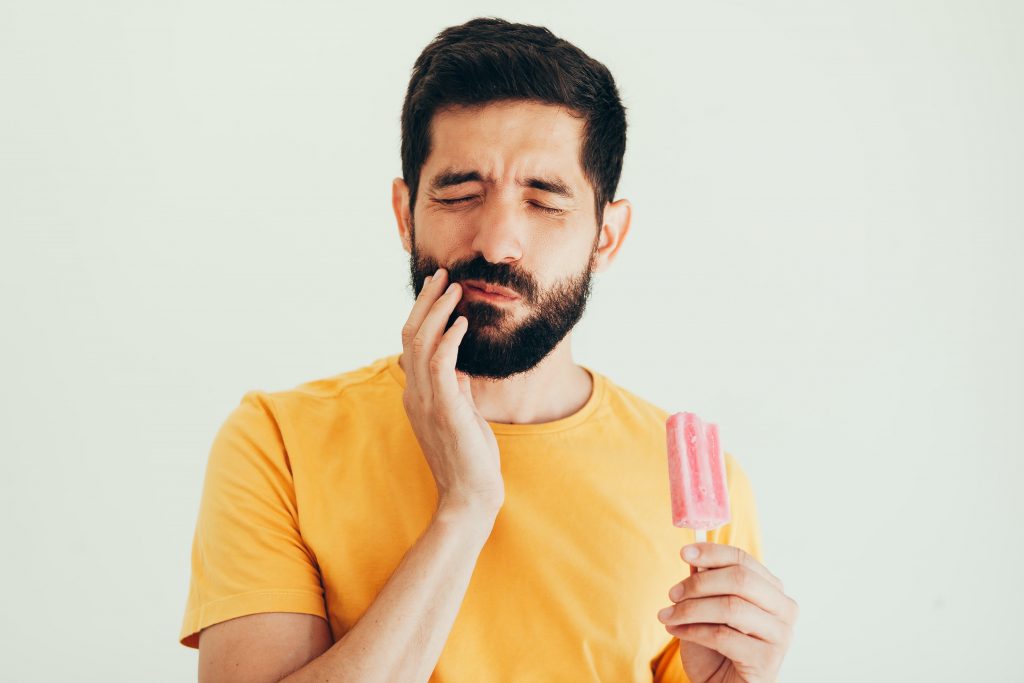
As the current restrictions continue to be lifted and people across the UK are able to once again travel freely and enjoy some hospitality, many may have recently encountered the infamous ‘ice-cream tooth ache’, a sensation of excruciating pain that is experienced by some people when biting or drinking something cold.
Now, for the first time, scientists believe they may have isolated the cause and mechanism of this common complaint at a cellular level.
Toothache and ‘brain freeze’ – a common connection
For some people, consuming a cold product causes a sudden and agonising toothache, while others may experience the phenomenon known as ‘brain freeze’, where an ice cold drink or an ice-cream causes a sudden, strong headache to be felt. German scientists are now reported to have located the cells and signals in sensitive teeth that detect big temperature drops and trigger these reactions – and may be able to offer some solutions for those who suffer.
Scientists were able to isolate the cause down to a particular molecule called TRPC5, and traced its location to a specific cell type known as the odontoblast, which can be found between the soft inner pulp and the hard outer layer of teeth composed of dentine, then enamel.
Why some teeth are more sensitive than others
The outside of our teeth is covered with a hard surface of enamel. It is the hardest tissue in the human body and forms the first and most important line of defense against tooth decay. The enamel has no feeling and protects the dentine layer beneath, a soft, sensitive layer that connects to the innermost pulp, where nerve cells live.
Damage, tooth decay and gum disease can cause the dentine to become exposed, amd as a result painful stimuli such as temperature or certain liquids will cause pain.
Lead scientist Dr Zimmermann of the Friedrich-Alexander University Erlangen-Nürnberg in Germany told the BBC: “In human teeth with pits and dental caries we found a much upregulated number of TRPC5 channels, and therefore we believe that engineering a TRPC5 blocker that can be locally applied to teeth via strips or chewing gum would probably be a great help in treating tooth pain or dentine hypersensitivity.”
Does clove oil stop tooth pain?
Clove oil has long been cited as an alternative treatment for toothpain, and there is some validity in the claims. The researchers found that clove oil contains a chemical called eugenol, which blocks the TRPC5 pathway. It is strongly recommended, however, that patients do not rely on DIY treatments, something that has become a serious concern during the recent lockdowns.
According to Prof Damien Walmsley from the British Dental Association (BDA), while blocking the pain might provide temporary relief, it is vital to treat and prevent the cause. Brushing regularly could stop tooth and gum disease, he advised.
“The research is interesting but we can’t ignore the underlying causes of tooth sensitivity, nor people’s perception of pain. Dentists can treat the cause by removing the tooth decay, and advise on toothpaste for sensitive teeth.”
The strong advice from all those involved in the research is simple – if you experience toothache, get in touch with your dentist and arrange an examination.
A glimmer of hope for those with sensitive teeth
Maintaining a good standard of oral hygiene is by far the best way to prevent sensitive teeth. In order to fight gum disease and tooth decay, dentists recommend brushing twice a day for at least two minutes using a quality, fluoride toothpaste. People are also encouraged to limit the amount of sugary drinks they consume as these can be a major contributor to tooth decay.
It is hoped, however, that in the future, TRPC5 blocking agents might be included in toothpastes and dental products to prevent the pain of sensitivity for those who persistently suffer.
Prof Zimmermann’s research was funded by the German Research Foundation and the Howard Hughes Medical Institute in the US and did not receive any commercial financing for the work.
Have you experienced sensitive teeth recently? To book an appointment today or to enquire about becoming a member of Regent Dental Centre, call now on 0161 941 2143.
References: https://www.bbc.co.uk/news/health-56536300


Website last updated: January 2025
Website Designed, Developed and Maintained by Pop Creative